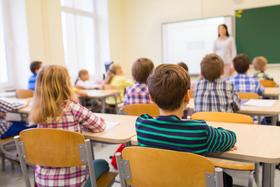Adopt-a-school programs are cropping up nationwide as many communities tune into the benefits the programs offer students and community members. According to the American Chemical Society, which operates such a program, ‚ÄúAdopt-a-school fosters a better sense of understanding of the community's school system, strengthens and improves school programs and curricula, and creates a sense of personal involvement and interaction between organizations and schools.‚Ä�
The benefits of adopting a school extend to all parties. The organization that adopts the school receives positive public relations through its involvement with such an integral part of the community. The school benefits from the involvement, as students are enriched through programs that expand their knowledge base. The school’s staff and faculty are supported in their efforts.
Indeed, the program can be a win-win for everyone if it is implemented well. Consider these four examples of positive adopt-a-school programs and the stellar results they have reaped for both the schools and the community at large.
Fort Hood
According to a report in the Killeen Daily Herald, this military base received national recognition in 2008 for its effective adopt-a-school program, winning the National Civic Star Award. Fort Hood partners with neighborhood schools in eight different Texas school districts every year, involving more than 5,000 soldiers and 2,500 teachers in the program. Soldiers go into the schools, read with the kids, and act as mentors. When the soldiers are deployed, many keep in touch with the children while they are away from home.
In addition

